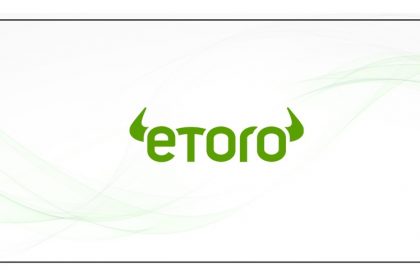Healthcare is evolving, and so should your practice. In the bustling world of medicine, the demand for efficient, high-quality patient care is ever-increasing. But let’s be honest, the administrative tasks can often bog down the real heroes – the healthcare providers. Enter the virtual healthcare assistant (VHA) – your secret weapon for transforming your practice.
What is a Virtual Healthcare Assistant?
First things first, what exactly is a virtual healthcare assistant? Virtual healthcare assistants are real people who work remotely to help manage your administrative tasks. They are skilled professionals who can handle everything from patient scheduling to billing, allowing you and your on-site staff to focus more on patient care.
Why Should You Consider Hiring a Virtual Healthcare Assistant?
There are many reasons why you should hire a virtual healthcare assistant. Let’s dive into the top reasons why adding a VHA to your team is a game-changer.
- Enhanced Efficiency
Imagine your practice running like a well-oiled machine. Virtual healthcare assistants can streamline administrative processes, reducing the time spent on routine tasks. They can manage appointments, send reminders, handle patient inquiries, and ensure that your schedule is optimised. This means fewer no-shows and a more organised day for you.
- Cost-Effective Solution
Hiring full-time, on-site staff comes with significant expenses, including salaries, benefits, and overhead costs. Virtual healthcare assistants, on the other hand, often work on a contract basis, allowing you to save on these additional costs. You only pay for the services you need, making it a cost-effective solution for both small and large practices.
- Improved Patient Experience
Happy patients are loyal patients. VHAs can provide prompt responses to patient queries, manage follow-ups, and ensure that patient needs are met efficiently. By offloading these tasks to a virtual assistant, your on-site staff can give more personalised attention to the patients in the office, leading to higher satisfaction levels.
- Access to a Broader Talent Pool
When hiring on-site staff, you are limited to the local talent pool. By going virtual, you can access skilled professionals from across the globe. This means you can find the perfect fit for your practice without geographical constraints. Plus, many virtual assistants have specialised training and experience in healthcare, ensuring they are well-equipped to handle the job.
What Can a Virtual Healthcare Assistant Do?
The scope of tasks a VHA can handle is impressive. Here are some key responsibilities they can take off your plate:
Administrative Tasks
- Scheduling and Rescheduling Appointments: Ensuring your calendar is up-to-date and optimised.
- Patient Registration and Data Entry: Keeping patient records accurate and current.
- Billing and Coding: Managing the financial aspects, including insurance claims and payment processing.
Patient Communication
- Answering Calls and Emails: Providing prompt and professional responses to patient inquiries.
- Appointment Reminders: Sending out reminders to reduce no-show rates.
- Patient Follow-ups: Checking in on patients post-visit to ensure they are satisfied and informed.
Clinical Support
- Transcription Services: Converting spoken notes into written documentation.
- Telehealth Assistance: Helping to set up and manage telehealth appointments.
- Prescription Management: Assisting with prescription refills and management.
How to Choose the Right Virtual Healthcare Assistant
Selecting the right VHA is crucial to reaping the benefits. Here are some tips to help you find the perfect match:
Identify Your Needs
Before starting your search, outline the tasks you need help with. This will help you find a candidate with the right skill set. Are you looking for someone to handle billing, patient communication, or both? Knowing your needs will streamline the hiring process.
Check Credentials
Ensure the virtual assistant has the necessary qualifications and experience in the healthcare field. Look for certifications, previous experience in medical settings, and specialised training.
Consider Communication Skills
Strong communication is key to a successful remote working relationship. Make sure the VHA is proficient in both written and verbal communication. This will ensure they can effectively interact with your patients and staff.
Evaluate Technical Proficiency
Since VHAs work remotely, they need to be tech-savvy. They should be comfortable using healthcare management software, telehealth platforms, and other digital tools that your practice relies on.
Conduct Thorough Interviews
Take the time to interview potential candidates thoroughly. This is your opportunity to assess their skills, experience, and compatibility with your practice’s culture. Don’t hesitate to ask for references and conduct background checks.
Integrating a Virtual Healthcare Assistant into Your Practice
Once you’ve selected your VHA, it’s time to integrate them smoothly into your practice. Here are some steps to ensure a seamless transition:
Onboarding and Training
Just like any new hire, your VHA will need proper onboarding and training. Familiarise them with your practice’s processes, software, and expectations. Provide them with access to necessary resources and tools.
Establish Clear Communication Channels
Set up regular communication channels to stay in touch with your VHA. This could be through daily check-ins, weekly meetings, or instant messaging platforms. Clear communication is essential to ensure they are aligned with your practice’s goals and tasks.
Set Performance Metrics
Define clear performance metrics and goals for your VHA. This will help you track their progress and ensure they are meeting your expectations. Regular feedback sessions can also help address any issues and improve performance.
Conclusion
Hiring a virtual healthcare assistant is a strategic move that can elevate your practice to new heights. By offloading administrative tasks to a skilled remote professional, you can focus more on what you do best – providing exceptional patient care. The benefits of enhanced efficiency, cost savings, improved patient experience, and access to a broader talent pool make it a worthwhile investment.








